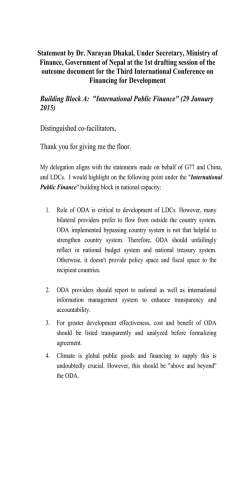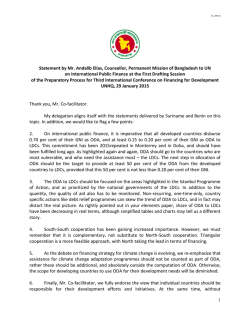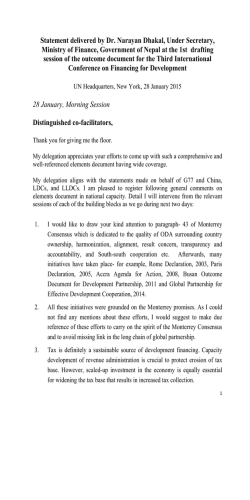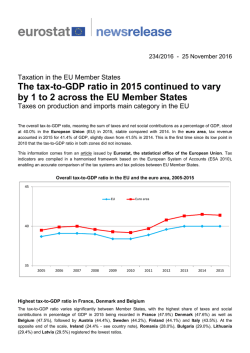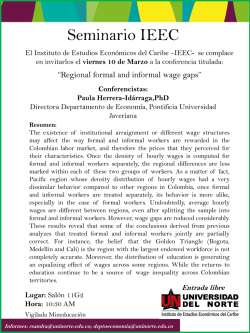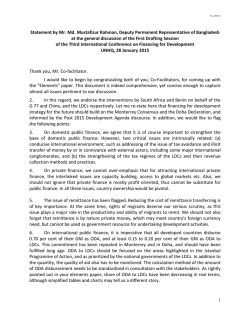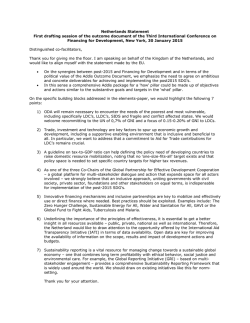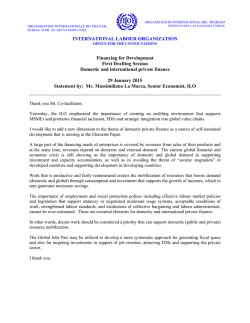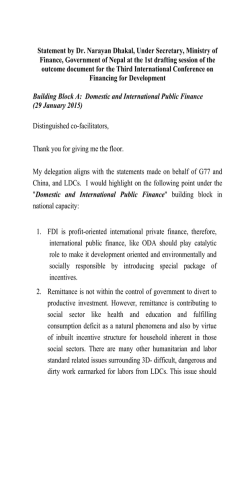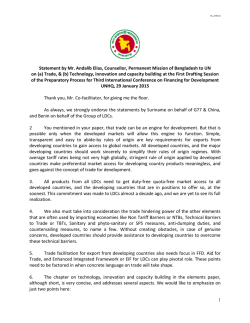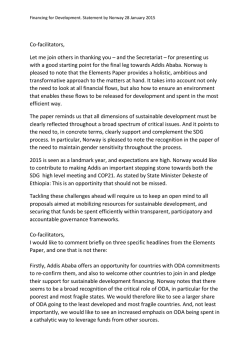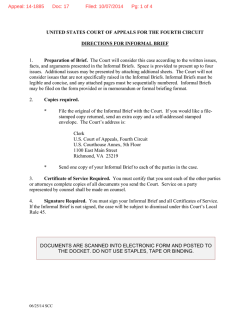
Bangladesh
AE_280115 Statement by Mr. Andalib Elias, Counsellor, Permanent Mission of Bangladesh to UN on Domestic Public Finance at the First Drafting Session of the Preparatory Process for Third International Conference on Financing for Development UNHQ, 28 January 2015 Thank you, Mr. Co-facilitator The points mentioned in the elements paper on this issue are interesting, and demand substantive deliberation for concrete language. It is without any doubt important to strengthen the base of domestic public finance. The issue of revisiting the tax structures is coming up again and again. Tax administration of course is a major component. However, a few points need to be kept in mind: 2. First, it is true that Tax-to-GDP ratio is quite low for many developing countries, including LDCs. However, development budget of many of these countries being significantly dependent on ODA, it is important to consider all dimensions and impacts about the feasibility of setting higher target of tax-to-GDP ratios for these countries. 3. Second, with significant percentage of the population below the poverty line in many of the developing countries, it may not always be practical to broaden the tax base in all cases. There has been suggestion of formalizing the informal sector, which deserves to be looked into. At the same time, it also needs to be considered that in many developing countries, the informal sector is mostly at subsistence level, and imposing tax on this population is not feasible. 4. Third, transparency regarding tax structure, collection, and sharing of information is of course important, which should be followed at all levels globally. It can really help addressing the issue of tax avoidance and illicit transfer of money by external actors, including some major international conglomerates, and contribute to increased domestic revenue generation. 5. And finally, fourth, there is need to assist the developing countries in strengthening their tax regimes, revenue collection methods and practices. That can be done through providing technical support, capacity building of tax collection authorities, digitalization etc. However, this kind of assistance should be demand-driven and without negatively affecting the quantity and quality of ODA that should go to productive capacity building sectors like physical infrastructure, trade facilitation and skills development. Thank you, Mr. Co-facilitator. --------------------
© Copyright 2026
